Funny stories: Alumni, students use comedy as lens for storytelling
Media School alumnus Brian Janosch’s seven-year stint inventing satirical news at The Onion began with learning to write real news stories at IU.
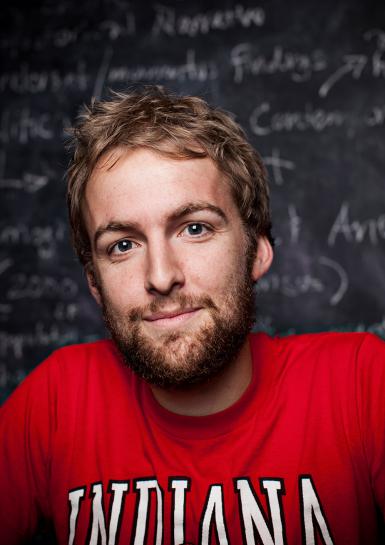
“I loved the student newsroom environment where you got to be silly and make stuff with your friends,” said Janosch, BAJ’07.
Throughout college, his love of sports was gradually eclipsed by a love of magazine journalism. A journalism major, he worked as a sports reporter and editor for the Indiana Daily Student before founding Inside, a student magazine that published for 11 years. Upon graduation, he moved to New York and started his career at Maxim magazine.
Nowhere along the way did he stop to plan how that trajectory would land him in the comedy business, he said. But once he got there, it felt right.
For many alumni, a career in comedy began with a degree in media. Whether they knew it at the time or not, their courses gave them the tools they needed to make an audience laugh: whether through film, written media or management, to build a platform and send a message.
“Entering media, and comedy especially, is more about being hardworking, being scrappy, being somebody people enjoy working with, being excited to learn new skills, being in touch with your own creative voice, and always excited to push beyond what’s been done before,” Janosch said.
Listen, I’m not sure what the rest of you use this for, but I’m mostly here to occasionally retweet @duckoftheday. https://t.co/51dIuYf0p1
— Brian Janosch (@BJanosch) December 11, 2018
He was hired as an editorial assistant at The Onion after a year at Maxim. He spent his first few years there sponging up co-workers’ jokes, and eventually began writing headlines and doing standup.
“It was The Onion that turned my general love of watching comedies and joking around with friends into an actual creative part of my brain capable of inventing it,” Janosch said.
Ten years after he left magazines, he’s worked on a entire satirical encyclopedia and developed the personality for Google’s artificial intelligence. He’s run a comedy event series, Comedy Hack Day, and even written for television.
“Comedy, like most of the great things in my life, probably found me more than I found it,” he said.
***
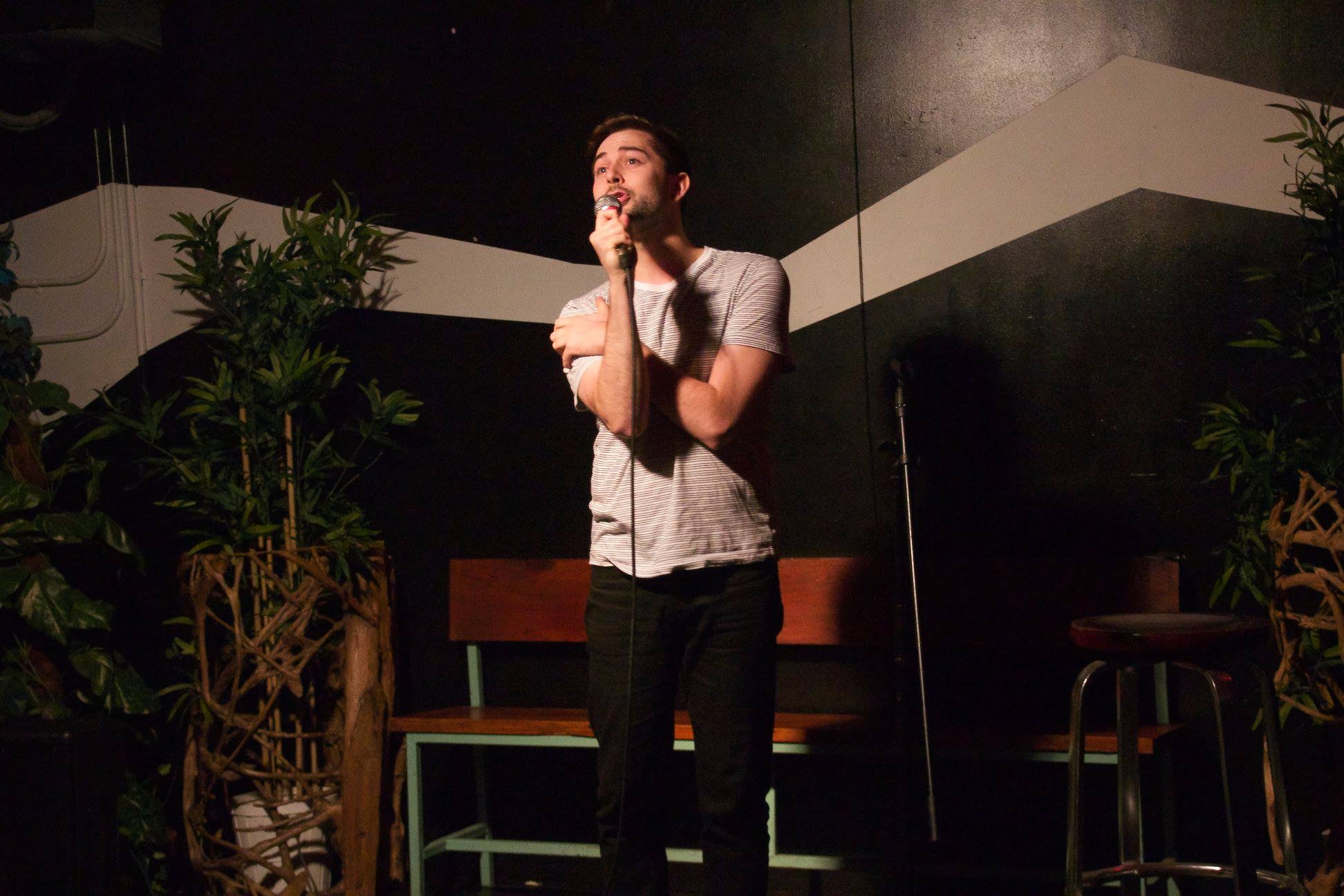
Griffin Leeds, BA’15, grew up an avid consumer of television and movies. His college education forced him to think more deeply and analytically about comedy.
“I think the theory-heavy background to my media studies education plays a key role in my comedy work on and off the stage,” Leeds said. “It’s what helps me think about identity and intersectionality, rhetoric and public speaking tactics, punching up and challenging the status quo, and the power one can have as a generator of media and content.”
Leeds is an improv, standup and sketch comedy performer around New York City, including at the Upright Citizens Brigade Theater. But as an IU student, he envisioned a future as a media studies professor.
“I always knew I wanted to both entertain and challenge others at the same time,” he said.
His pivot into comedy was merely a repurposing of those goals.
UGH! Everyone is getting engaged except my core!
— Griffin Leeds (@GriffinLeeds) December 30, 2018
At IU, Leeds majored in communication and culture and performed with the campus improv group Midnight Sack.
Post-college, Leeds was working at a restaurant in Indianapolis, saving money to move to Chicago and pursue improv, when he was contacted by The Tab, a media startup with a new office in Brooklyn. Leeds saw the job offer as a different route to his ultimate goal: to work in comedy in New York.
In addition to his standup, improv and sketch work, he’s also leading the development of an LGBTQ+ satire website, where he’ll serve as executive editor. It’s just another way his media and digital content creation roots have merged with his work in comedy.
“The degree and my media-adjacent involvement on campus ended up being key,” he said.
***
Media School senior Bradley Kohlmeier’s in-production short film, Stan the Man, is about a trio of college freshman seeking to fit in by losing their virginity.
It’s raunchy, edgy and ultimately about something universal.
While he’d love to produce a big-budget actioner, Kohlmeier said that’s not realistic on campus. The local film scene is dominated by drama and art films, he said, so comedy felt like a welcome and different niche.
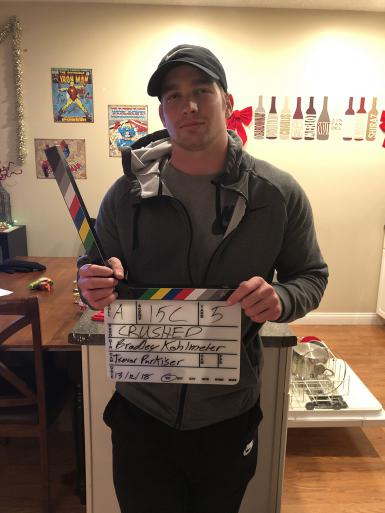
He wrote Stan the Man specifically for Bloomington, and cites movies like Deadpool and Superbad as inspirations.
Working in comedy film is challenging compared to other genres, he said, because it’s a business of absolutes.
“I think comedy is more difficult. It’s just hit or miss,” Kohlmeier said. “It’s either going to be garbage, or some people are going to find it funny.”
There’s a smaller crowd to work with in comedy film, he said, and there’s also a concern that people might find his screenplay too dirty.
“Before people come on the project, I make them read the script just so they know what they’re getting into,” he said.
He hopes more people will try out comedy films, because he thinks a more competitive environment might push people to create better art.
“We’d be able to push each other a little more,” he said. “I think that when more people are in your field it gives you more of a challenge. It makes you better.”
***
Comedy is more than just an opportunity to make people laugh, said Media School junior Julia Weinstock. It’s an opportunity to challenge them, motivate them and make them think.
“People don’t see comedy as a serious institution, but it really is,” she said. “It brings joy to people, but also it makes you think. It’s just as serious as any other job.”
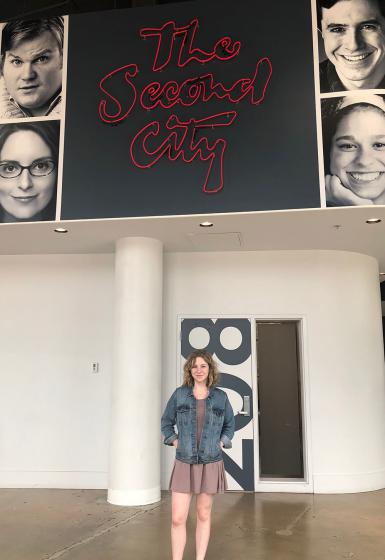
At IU, she studies creative industry management, performs weekly with Awkward Silence Comedy and does casting and assistant directing work. This summer, she interned at Second City, a Chicago comedy club whose alumni list includes industry giants such as Steve Carell, Tina Fey and Keegan-Michael Key.
Weinstock has dreamed of working at Second City since she first saw a show there when she was 12 years old. She remembers not understanding many of the jokes — as well as the awkwardness of understanding which ones were about sex — but also being impressed by the performers’ ability to control and enchant their audience. She read book after book about the company and fell in love with comedy.
“I was a theater kid for my entire life, and I was torn between wanting to study theater as a performer versus being behind the scenes,” she said.
Eventually that interest merged with her love of comedy.
It brings joy to people, but also it makes you think. It’s just as serious as any other job. —Junior Julia Weinstock
“Once I got to college, I kind of embraced my love of comedy and made that switch from focusing on straight plays, theater, musicals, and made the switch to producing and managing comedy and that side of the theatrical arts,” she said.
Though she’s considered following her TV production experience into the business, Weinstock wants to work in a club or theater setting because it’s freer — less beholden to the rules of what can and can’t be broadcast.
And comedy shouldn’t be restricted, she said. It should just be about making people laugh.
***
As a freshman at IU, Brian Toombs — who planned to study business — was randomly placed in a residential freshman interest group on film and television.
He met telecommunications majors and changed his major. Fifteen years later, he’s the vice president of digital content for the comedy website Funny Or Die.
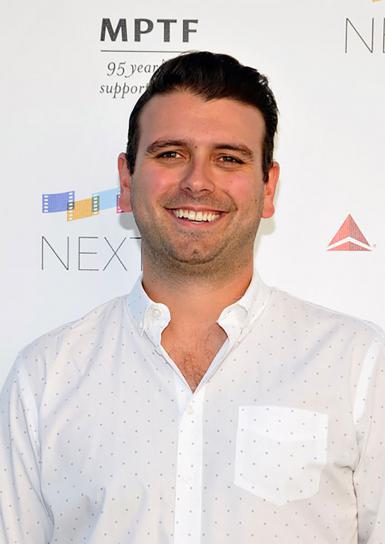
“I got to do the work which helped me find my voice, form my point of view and gave me confidence to take my dream to Hollywood,” said Toombs, BA’07. “I credit IU big-time for setting me on my path.”
Toombs said his job in comedy is always a joy. Comedy keeps him interested in the job and makes coming to work more fun.
“It doesn’t mean we take it less seriously than any other kind of business, but it means we get to laugh a lot and we get to debate what we think is funny and why,” he said.
To him, that’s a vital part of work. It’s up to content creators and producers to curate content that is genuinely funny and accessible.
“What one person thinks is funny, another person doesn’t, and we experience that every day,” he said. “What’s more important is the debate and the conversation and earning it.”
Toombs said comedy, and to a similar extent his work in managing its creation, is important for two reasons.
“One, it is a reflection of society. It is a way to say things back to culture in a way that is maybe a little bit easier to digest,” he said. “The second is it makes people happy, and if you can make people happy, that’s a great thing.”
More:

